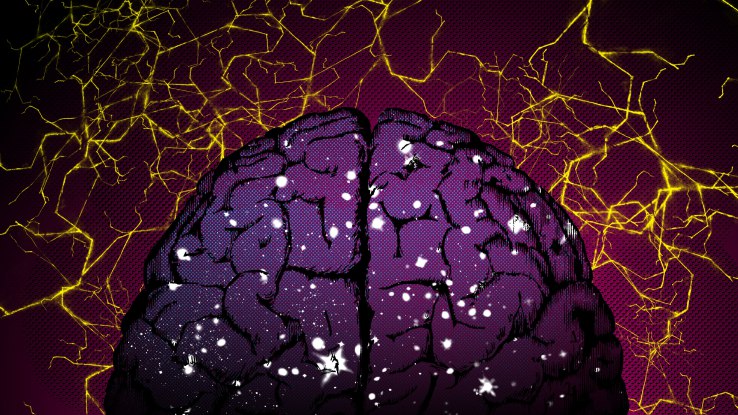
Diagnosed with Cancer? Your two greatest challenges are understanding cancer and understanding possible side effects from chemo and radiation. Knowledge is Power!
Learn about conventional, complementary, and integrative therapies.
Dealing with treatment side effects? Learn about evidence-based therapies to alleviate your symptoms.
Click the orange button to the right to learn more.
- You are here:
- Home »
- Blog »
- side effects ID and prevention »
- Managing Mental Health as a Cancer Survivor
Managing Mental Health as a Cancer Survivor

In early 1994 I was diagnosed with an incurable blood cancer called multiple myeloma.
I underwent surgery, chemotherapy and radiation, between my original diagnosis in early 1994 and my oncologist telling me that “we can do nothing more for you” in September of 1997.
A cancer diagnosis and years of conventional cancer therapies can do a number on your mental health- both brain damage in the form of chemo brain or brain damage in the form of mental health issues.
This post is about living as a cancer survivor with mental health challenges.
Though I am now in complete remission from my incurable cancer, I grapple with PTSD, fear of relapse, anxiety and much more. I’ve never been formally diagnosed with any specific mental illness but I exhibit many of the symptoms discussed in the studies linked below.
While conventional oncology may be able to stabilize your cancer, living with cancer as well as conventional cancer therapies such as chemo and radiation can damage your mental health causing:
- Depression
- PTSD
- Anxiety
and much more.
My point is, surviving cancer is about much more than being “cancer-free.” To put it another way, reaching complete-remission (cancer-free status) is great. However cancer survivors must be aware of possible long-term mental health issues as well.
Conventional oncology does not study the long-term and late stage side effects of FDA approved “standard-of-care” protocols.
My experience combined with years of research has identified a number of evidence-based but non-conventional therapies shown to treat the cancer survivor’s depression, anxiety, PTSD and more.
I can attest to the efficacy of the many evidence-based, non-toxic mental health therapies because I have been doing them, practicing them all for years now. I am still easily-startled but I am happy to report that my depression, anxiety, PTSD, chemobrain, etc. have all greatly improved.
Please don’t expect your board-certified oncologist to acknowledge, much less treat, your cancer-induced mental health issues. This isn’t what conventional oncology does.
The evidence-based but non-conventional therapies that I pursue daily/weekly, are evidence-based but are not FDA approved.
All of these categories contain therapies shown to manage my depression, anxiety, my PTSD, etc. I am not saying that conventional therapies do not have a place in the armamentarium of mental health therapies. I am saying two things:
First and foremost, I use/pursue evidence-based, non-conventional therapies to manage my cancer survivor mental health challenges and
Secondly, I urge you to also pursue evidence-based, non-convetional therapies to manage any mental health challenges you have before you pursue conventional medications.
I’ve written about managing the mental health of the cancer survivor dozens of times over the years. These posts are all about evidence-based, non-toxic therapies.
- Cancer, Mind-Body Therapies and Sense of Purpose
- Multiple Myeloma Side Effects- PTSD, Mind-Body Therapy
- “Forest Bathing” + Hiking = Mind-Body Cancer Therapy-
- Multiple Myeloma-10 Mind-Body Cancer Therapies Better than Chemo-
- Multiple Myeloma Diagnosis, Exercise as Mind-Body Therapy
- Alzheimer’s, Cognitive Function, Mind-Body Therapy
- Multiple Myeloma Survival- Positive Thinking, Mind-Body Therapy
- Mind-Body Therapy Alters Gene Expression Reducing Risk of Myeloma Relapse
- Surviving Multiple Myeloma But w/ PTSD? Mind-Body Therapy
- Mind-Body Therapy- “We’re In This Together” Fighting Spirit
- Multiple Myeloma Patients can Manage Depression w/ Non-Toxic Therapy
- ADT for Prostate Cancer and Risk of Dementia and Depression
- Reduce Brain Inflammation, Reduce Risk of Depression, Risk of Suicide
- Mild Cognitive Impairment, Alzheimer’s, Depression, etc- Therapies to Slow Decline
- Coffee Reduces Cancer Risk, Improves Brain Health, and Smells Great
Scroll down the page, post a question or a comment and I will reply to you ASAP.
- Learn about healing chemotherapy-induced aging- click now
- Learn about healing chemo brain- click now
- To Learn More About Cancer Therapy’s Effect on Mental Health- click now
- Learn about my long-term myeloma survivor experience- click now
- To Learn More about Reminiscence Therapy-click now
- To Learn More about short, long-term and late stage side effects- click now
- To Learn More about cancer and PTSD- click now
Thanks and hang in there,
David Emerson
- Cancer Survivor
- Cancer Coach
- Director PeopleBeatingCancer
Recommended Reading
- Mind-Body Therapy for Multiple Myeloma…Marriage!?
- Radical Multiple Myeloma Remission- Am I Cured?
- Ballooning Myeloma Survivor population in the U.S.
Depression and anxiety in long-term cancer survivors compared with spouses and healthy controls: a systematic review and meta-analysis
“Findings: Our search returned 144 results, 43 were included in the main analysis: for comparisons with healthy controls, 16 assessed depression and ten assessed anxiety; of the comparisons with spouses, 12 assessed depression and five assessed anxiety…
The prevalence of depression was 11·6% in the pooled sample of 51 381 cancer survivors and 10·2% in 217 630 healthy controls. The prevalence of anxiety was 17·9% in 48 964 cancer survivors and 13·9% in 226 467 healthy controls…”
Post-Traumatic Stress Disorder and Cancer
Aspects of the cancer experience that might trigger PTSD include:
- The diagnosis
- Pain from the cancer or other physical issues
- Tests and treatments
- Test results
- Long hospital stays or treatments
- The cancer’s return or fear of its return
AYA Cancer Survivors Experience Mental Health Impact Long After Treatment
“Survivors experienced a 30% higher rate of outpatient mental-health visits compared to the control group. Most visits were linked to anxiety disorders, which supports findings from a previous study that found that survivors had a 60% higher risk of anxiety and adjustment disorders than their siblings.

